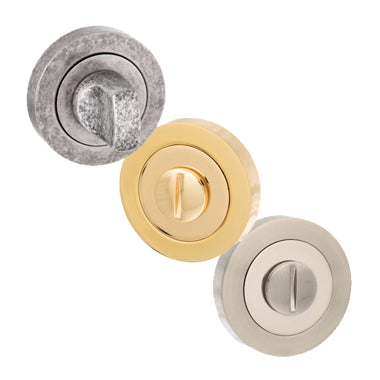Doors can suffer from various types of surface damage over time, including scratches, dents, and holes. Here’s a comprehensive guide to help you fix common damaged surfaces on doors.
- Sandpaper (various grits)
- Wood filler or putty
- Putty knife
- Paint or wood stain
- Paintbrush or roller
- Screwdriver
- Chisel (if needed)
- Primer (if painting)
- Cloth or sponge
Steps to Fix Common Door Surface Damage
1. Fixing Scratches
Minor Scratches
-
Clean the Area: Wipe the area with a damp cloth to remove any dust or dirt.
-
Sand Lightly: Use fine-grit sandpaper to sand the scratch lightly, blending it with the surrounding surface.
-
Apply Stain or Paint: If the door is stained or painted, apply a matching stain or paint to the sanded area.
Deep Scratches
-
Clean and Sand: Clean the area and sand it lightly with medium-grit sandpaper.
-
Apply Wood Filler: Use a putty knife to apply wood filler into the scratch. Smooth it out and let it dry completely.
-
Sand Smooth: Once the filler is dry, sand it with fine-grit sandpaper until smooth.
-
Stain or Paint: Apply a matching stain or paint to blend the repaired area with the rest of the door.
2. Fixing Dents
-
Clean the Area: Wipe the dented area with a damp cloth.
-
Fill the Dent: Use wood filler to fill the dent. Apply the filler with a putty knife, smoothing it out to match the door's surface.
-
Let It Dry: Allow the filler to dry completely.
-
Sand Smooth: Sand the filled area with fine-grit sandpaper until it is smooth and level with the rest of the door.
-
Paint or Stain: Apply a matching paint or stain to the repaired area.
Common Damage and Solutions
| Type of Damage |
Tools Needed |
Steps to Repair |
| Minor Scratches |
Fine-grit sandpaper |
Clean, sand lightly, apply stain/paint |
| Deep Scratches |
Medium/fine-grit sandpaper, wood filler |
Clean, sand, apply filler, sand, paint/stain |
| Dents |
Wood filler, putty knife, fine-grit sandpaper |
Clean, fill, dry, sand, paint/stain |
3. Fixing Holes
-
Clean the Area: Remove any debris or loose material from the hole.
-
Fill the Hole: Use wood filler or putty to fill the hole. Apply the filler with a putty knife, ensuring it fills the hole completely.
-
Let It Dry: Allow the filler to dry as per the manufacturer’s instructions.
-
Sand Smooth: Sand the filled hole with medium to fine-grit sandpaper until smooth.
-
Prime (if needed): If you plan to paint the door, apply a primer to the repaired area.
-
Paint or Stain: Apply paint or stain to match the rest of the door.
Step-by-Step Repair for Holes
| Step |
Action |
| Clean the Area |
Remove debris and loose material |
| Fill the Hole |
Apply wood filler with a putty knife |
| Let It Dry |
Allow filler to dry completely |
| Sand Smooth |
Sand the filled area until smooth |
| Prime (if painting) |
Apply primer to the repaired area |
| Paint or Stain |
Apply matching paint or stain |
4. Repairing Cracks
-
Clean the Crack: Wipe away any dust or dirt from the crack.
-
Fill the Crack: Use wood filler to fill the crack, pressing it in firmly with a putty knife.
-
Smooth the Surface: Smooth the filler with the putty knife and let it dry.
-
Sand the Area: Sand the filled crack with fine-grit sandpaper until smooth.
-
Paint or Stain: Apply a matching paint or stain to blend the repair with the rest of the door.
Preventative Maintenance Tips
-
Regular Cleaning: Keep doors clean to prevent buildup of dirt and grime, which can cause damage over time.
-
Use Door Stops: Install door stops to prevent doors from hitting walls or furniture, which can cause dents and scratches.
-
Handle with Care: Avoid slamming doors to prevent cracks and other damage.
Maintenance Checklist
| Task |
Frequency |
| Clean door surfaces |
Monthly |
| Inspect for damage |
Quarterly |
| Apply protective finishes |
Annually |
| Repair minor damage |
As needed |
Conclusion
Repairing common door surface damage involves cleaning, filling, sanding, and finishing. By following these steps and maintaining your doors regularly, you can keep them looking great and functioning properly. If you are planning a home renovation and need new doors, check out the extensive selection available at Internal Doors.

































































































































